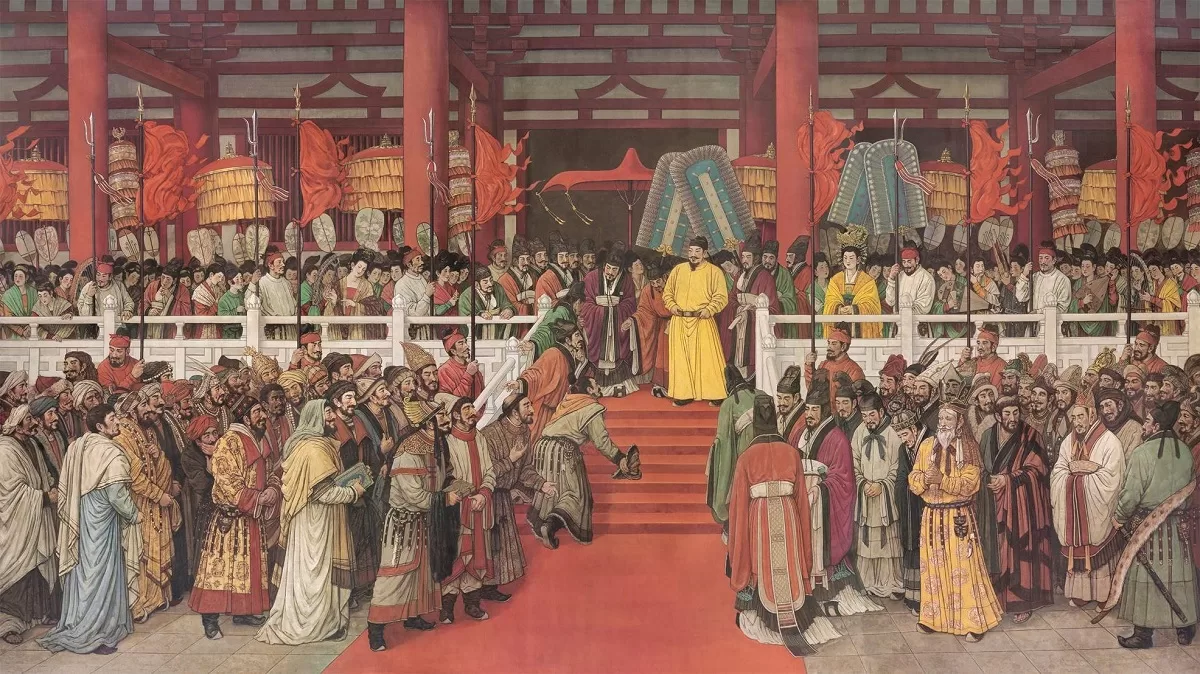Tang Taizong, also known as Emperor Taizong of Tang, was the second emperor of the Tang Dynasty in China. He ruled from 626 to 649 and is widely regarded as one of the greatest emperors in Chinese history. Tang Taizong’s reign was marked by remarkable military conquests, administrative reforms, cultural achievements, and diplomatic prowess.
Military Achievements:
Tang Taizong initiated a series of military campaigns to expand the empire’s territory and strengthen its borders. He successfully conquered the Eastern Turks, the Goguryeo Kingdom in Korea, the Western Turks, and several other regions in Central Asia. His military campaigns were characterized by strategic planning, effective organization, and innovative tactics. Taizong implemented a system of civil-military administration that allowed for efficient military governance, which contributed to his conquests and the stability of the empire.
Administrative Reforms:
Tang Taizong implemented a wide range of administrative reforms that greatly improved governance and laid the foundation for the dynasty’s long-lasting prosperity. He introduced a system of civil service examinations to select government officials based on merit rather than birthright, ensuring that the best and brightest would serve the empire. This examination system became a hallmark of Chinese governance for centuries. Taizong also established a centralized bureaucracy with clearly defined roles and responsibilities, promoting efficiency and accountability within the government.
Legal Reforms:
Tang Taizong is well-known for his significant legal reforms. He created a comprehensive legal code known as the “Laws and Regulations of the Great Tang,” which served as a model for subsequent legal systems in East Asia. The code aimed to provide fair and just laws, promote social order, and protect the rights of the people. It established clear guidelines for criminal and civil cases, standardized punishments, and emphasized the principle of equal treatment before the law. Tang Taizong’s legal reforms contributed to the stability and harmony of the Tang Dynasty.
Economic Development:
Under Tang Taizong’s rule, the economy of the Tang Dynasty flourished. He implemented policies that promoted agriculture, encouraged trade, and improved infrastructure. Taizong implemented land reforms, redistributing land to increase agricultural productivity. He also encouraged the growth of industry and trade, establishing a prosperous market economy. The empire saw significant urban development, with the capital city of Chang’an becoming a cosmopolitan center of commerce and culture.
Cultural Patronage:
Tang Taizong was a patron of the arts and culture. He supported scholars, poets, and artists, fostering an environment of creativity and intellectual growth. Taizong gathered renowned poets in his court. These poets, known as the “Eight Immortals of the Wine Cup,” produced exquisite works of poetry that are still celebrated today. Taizong’s patronage of the arts contributed to the flourishing of Tang Dynasty literature and culture.
Diplomacy and International Relations:
Tang Taizong was skilled in diplomacy and maintained stable relationships with neighboring countries and regions. He established friendly relations with the Western Turks, securing peace and opening trade routes along the Silk Road. Taizong also pursued a policy of “tributary diplomacy” with neighboring countries, where they would acknowledge the supremacy of the Tang Dynasty in exchange for trade and protection. This diplomatic strategy helped maintain stability and expand the influence of the empire.
Conclusion
Tang Taizong’s legacy as a wise and capable ruler continues to resonate in Chinese history. His military successes, administrative reforms, legal innovations, economic development, cultural patronage, and diplomatic achievements played a pivotal role in shaping the Tang Dynasty and leaving a lasting impact on Chinese civilization.


